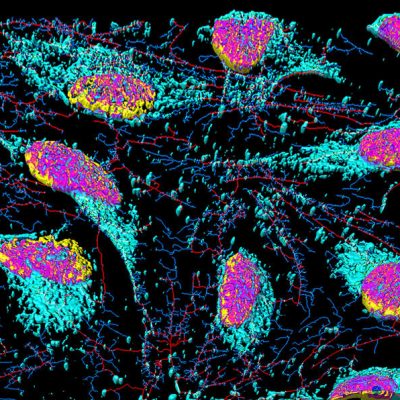A new vaccine may soon offer lifelong protection against the flu. In a clinical phase I study, the safety and efficacy of the vaccine have already been confirmed. The effectiveness of influenza vaccines is subject to strong seasonal fluctuations and averages at 50%. This is because medicine must predict which flu strain will occur before the winter season begins to adjust the available vaccines accordingly. Scientists at the Icahn School of Medicine at Mount Sinai have now presented a chimeric vaccine against the flu, whose effectiveness has been successfully tested through a clinical phase I study with various strains of the virus-caused infectious disease.
Most seasonal flu vaccines alert the immune system to the pathogen through a protein molecule (hemagglutinin) on the outer shell of the virus. Then, an immune reaction recognizes and destroys the viruses. However, hemagglutinin differs greatly between many flu strains and changes constantly. The vaccine presented by Austrian virus researchers Florian Krammer, Peter Palese, and Raffael Nachbagauer activates the immune system for a strain section of hemagglutinin that is extremely similar in all viruses. The chimeric vaccine combines a strain with different head domains.
In the clinical phase I study, the chimeric vaccine was tested on 65 subjects between the ages of 18 and 39. It proved to be safe and effective, with the vaccinated subjects showing a strong immune response to various flu viruses for at least 18 months. The vaccine will now be tested on older people up to 59 years old. According to the developers of the new vaccination method, two to three vaccinations could protect a person from influenza viruses for life.
The new vaccine could also trigger an immune response against a broad spectrum of flu viruses, including new subtypes, preventing possible pandemics caused by new influenza viruses. Additionally, the vaccine would make the annual flu vaccinations, which are weakly demanded even by risk groups in Germany, unnecessary. A permanent vaccination could significantly improve the protection of the population against influenza viruses, especially in poorer countries where there is little money for regular vaccinations.










